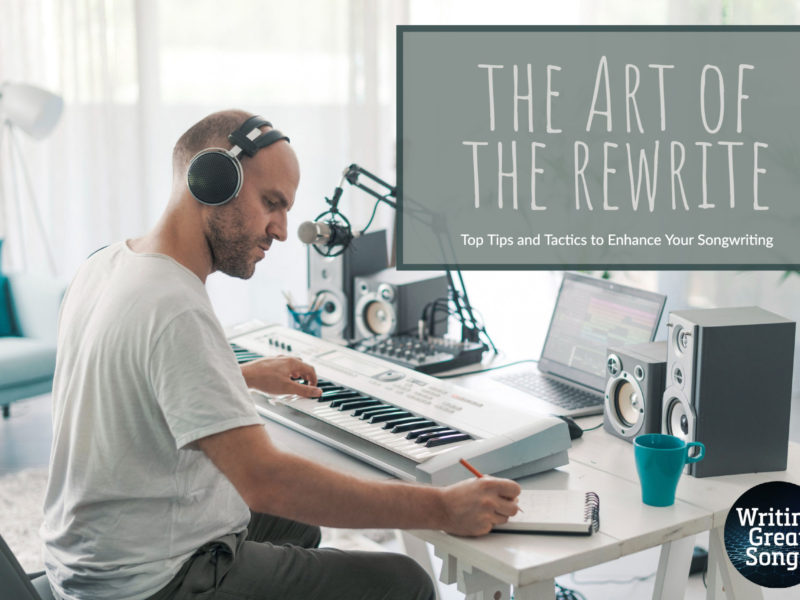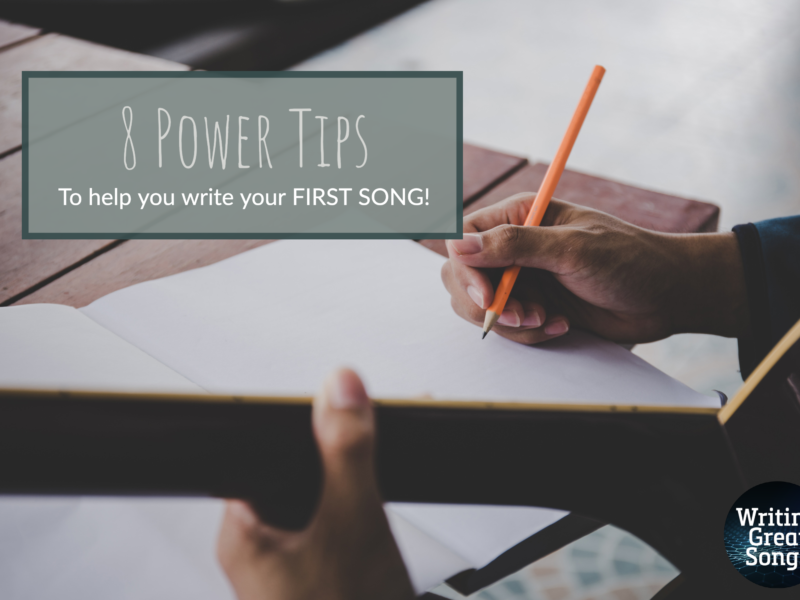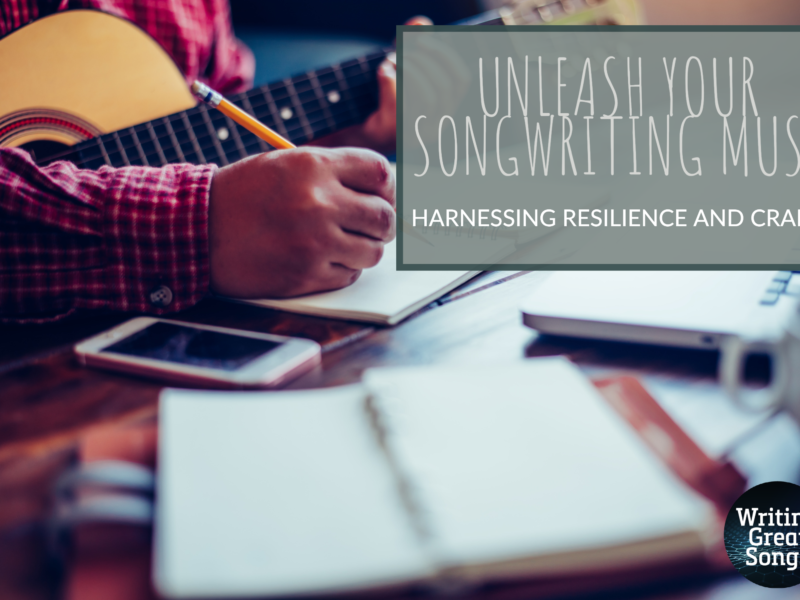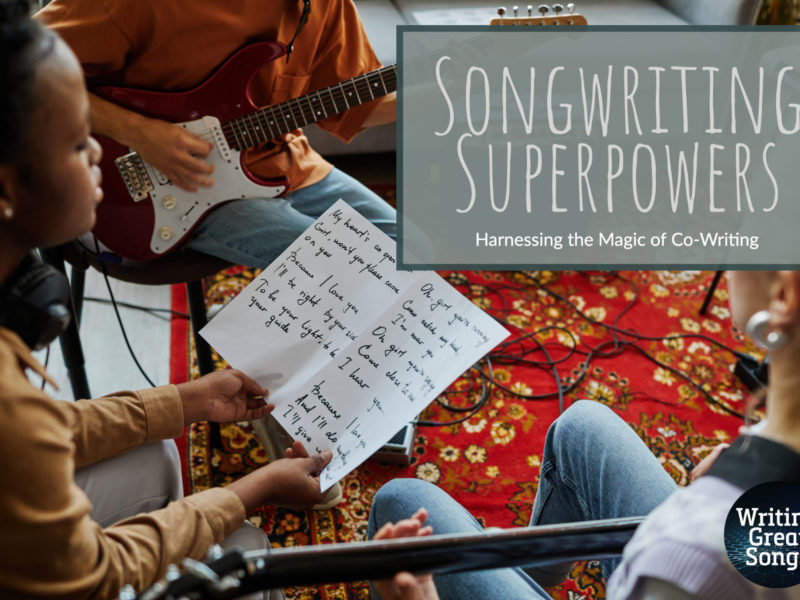
What To Expect When You Work With A Songwriting Coach
by Debra Alexander
When you set out to find and work with a songwriting coach, the obvious objective is to improve your music and lyrics. But there are many additional benefits, some of which would include the ability to: boost your creative output, determine your best songwriting workflow, learn about networking opportunities, notch new songwriting successes, and develop your understanding of which channels will get the kinds of songs you write to the audiences you desire.
First and foremost, look for a coach you like and resonate with. A coach will likely offer an initial consultation to determine whether a working relationship with you will be a good fit. You may want to interview more than one coach. At the conclusion of the consultation, a coach should be able to offer a program of study that addresses your needs and your goals, give you an idea of what you should expect to achieve, and tell you how your achievements will be assessed over a specific period of time.
Following is the 10 Point program I use in my songwriting coaching practice. This program is geared toward songwriters who feel they have an undeniable urge to create, as well as a passion to allow their songs to find a voice in the world. Teaching programs typically involve assessment and measurement of skills, and these 10 points have evolved from my experience as a Learning Skills Specialist at a New England boarding school, where we were required to document the progress of our students with Initial, Interim, and Final Reports. A student-coach relationship is unique in every situation, and a teaching approach should be tailored accordingly, but, here are some fundamental concepts that a coaching program might include.
1 Get a baseline— involves critique
Your coach should ask to hear 1-3 examples of songs you’ve written, or request 1-3 examples of lyrics. A critique of your craft would typically include musical and lyrical elements, as well as production elements if applicable. There are many kinds of critiques available online, ranging from checkbox forms to recorded spoken feedback to written reports, but everyone will probably be covering standard, universally acknowledged elements. The difference is in the details. If you are seeking a critique from a coach, make sure you understand what is covered and how it is presented.
2 Assess strengths and weaknesses in lyrics/music and production as well as business/networking skills
During your initial consultation, a coach should get a feel for how well you know your own strengths and weaknesses, and if you understand how to improve or supplement your weaknesses in order to achieve your songwriting goals.
3 Determine Learning Style
A coach should work with you so that you are learning in a way that allows you to make the fastest progress. Are you a visual, auditory, or kinesthetic learner? A coach can help you develop an awareness for how you work best and give you exercises to improve your skills based on your particular learning style. In addition, a coach can address left and right brain techniques to engage your creativity and move you through so-called ‘writers block’.
4 Set goals— creative and business
One of the most challenging aspects of improving your songwriting craft might be gaining an understanding of where your songs fit in today’s current musical landscape. It seems so simple, but when you’re inside your own songs, it can be tough to have the objectivity necessary to find your niche. Your goals will be shaped by a number of factors that all hinge on what audience you would like to engage. Different audiences might range from having friends and family appreciate your songs to having a major label deal. Different strategies are required in order to get the outcome you seek.
5 Determine songwriting workflow
Do you have systems in place for each stage of your songwriting process? Do you have a way to capture and catalogue your ideas, demos, and finished recordings with appropriate data? How do you keep track of your song administration; i.e., registering songs with your PRO, noting pitch opportunities and pitch submissions, filing agreements and contracts? Over the course of your work with a coach, you should get some direction on how to explore your best songwriting workflows. One of the greatest benefits of having a song coach is learning how to develop your best and most creative production habits. Having a coach hold you accountable for regular assignments produces results.
6 Discuss Networking Strategies
You may need to find additional team members to help you meet your songwriting goals, or you may need to shore up your songwriting weaknesses. You should be aware of other songwriters in your area and genre who are aspiring to be successful, as well as some who already are successful. Knowing who might be a potential collaborator in the form of a lyricist or musician or producer is part of piecing together the puzzle that creates a picture of success. At the very least, your songwriting coach should be familiar with the local songwriting scene in your town and be able to offer some suggestions for networking. Ideally, your songwriting coach would have experience working with songs in the genre you write in, most likely via a major music centre in your part of the world.
7 Outline an action plan
Together, you and your coach should be able to come up with a workable plan that motivates and excites you. Your big goals can be broken down into achievable steps, so that you feel a sense of accomplishment every time you meet. A coach can help light that fire that may have dwindled down to embers because you haven’t challenged yourself enough.
8 Determine ways to measure songwriting success
Songwriting “success” is unique to each individual. It can be an incredible trap to compare yourself to other songwriters as you work towards your songwriting goals. Your songwriting coach can help you stay positive as you navigate environments that have been constructed from criticism and competition and decades of artistic oppression. I have outlined some ideas on how songwriting progress might be evaluated in one of my blogs. The achievements presented there represent a high bar, but equally significant achievements might range from logging writing time every day to learning how to play a new chord on guitar or piano.
9 Assess results on a regular basis
The SMART Goals criteria (Specific, Measurable, Achievable, Relevant, and Time-bound) used in Management By Objectives programs is certainly applicable to creative endeavours. Depending on the length of your working relationship, as you work with a songwriting coach you should periodically be required to re-evaluate your objectives and progress. Your coach should ask for feedback on whether or not the program of study is meeting your needs. Both parties should be willing to adjust as necessary.
10 Set New Goals
All good things must come to an end, and yet, with songwriting, the learning never ends. You or your coach might decide your relationship has gone as far as it can go. If your coach is well connected, he or she may have suggestions for your next steps. Set new goals and learn from as many people as possible.
 There are more ways to learn about songwriting than ever before because of new technology, the internet, social media, etc. Coursera’s MOOC (Massive Open Online Courses) began offering a free songwriting course with Berklee School of Music Songwriting Professor Pat Pattison in 2013, and more than 300,000 people have signed up for it so far. And of course, Berklee also has its own online courses that can lead to Specialist, Professional, or Master certificates in Songwriting. There are a number of excellent organizations that offer songwriting instruction tools as part of their member benefits, such as the Songwriter’s Association of Canada, The Nashville Songwriter’s Association International (NSAI), Song U, and Songpreneur. Other organizations, like PROs and Guilds and Alliances and “Independent A & R” company, Taxi, offer a vast collection of information in various formats with the goal of improving your songwriting. In today’s fiercely competitive music industry it’s helpful to have many different sources of reliable information and a way to strategically navigate through all of them in a way that satisfies your soul and leaves you inspired rather than overwhelmed. A songwriting coach can help you with that.
There are more ways to learn about songwriting than ever before because of new technology, the internet, social media, etc. Coursera’s MOOC (Massive Open Online Courses) began offering a free songwriting course with Berklee School of Music Songwriting Professor Pat Pattison in 2013, and more than 300,000 people have signed up for it so far. And of course, Berklee also has its own online courses that can lead to Specialist, Professional, or Master certificates in Songwriting. There are a number of excellent organizations that offer songwriting instruction tools as part of their member benefits, such as the Songwriter’s Association of Canada, The Nashville Songwriter’s Association International (NSAI), Song U, and Songpreneur. Other organizations, like PROs and Guilds and Alliances and “Independent A & R” company, Taxi, offer a vast collection of information in various formats with the goal of improving your songwriting. In today’s fiercely competitive music industry it’s helpful to have many different sources of reliable information and a way to strategically navigate through all of them in a way that satisfies your soul and leaves you inspired rather than overwhelmed. A songwriting coach can help you with that.
Songwriter and Music Industry Pro Teacher Debra Alexander guides passionate songwriters of all ages and levels to write standout songs and have fun with performances. She can be reached at www.wordmavenmusic.com.






